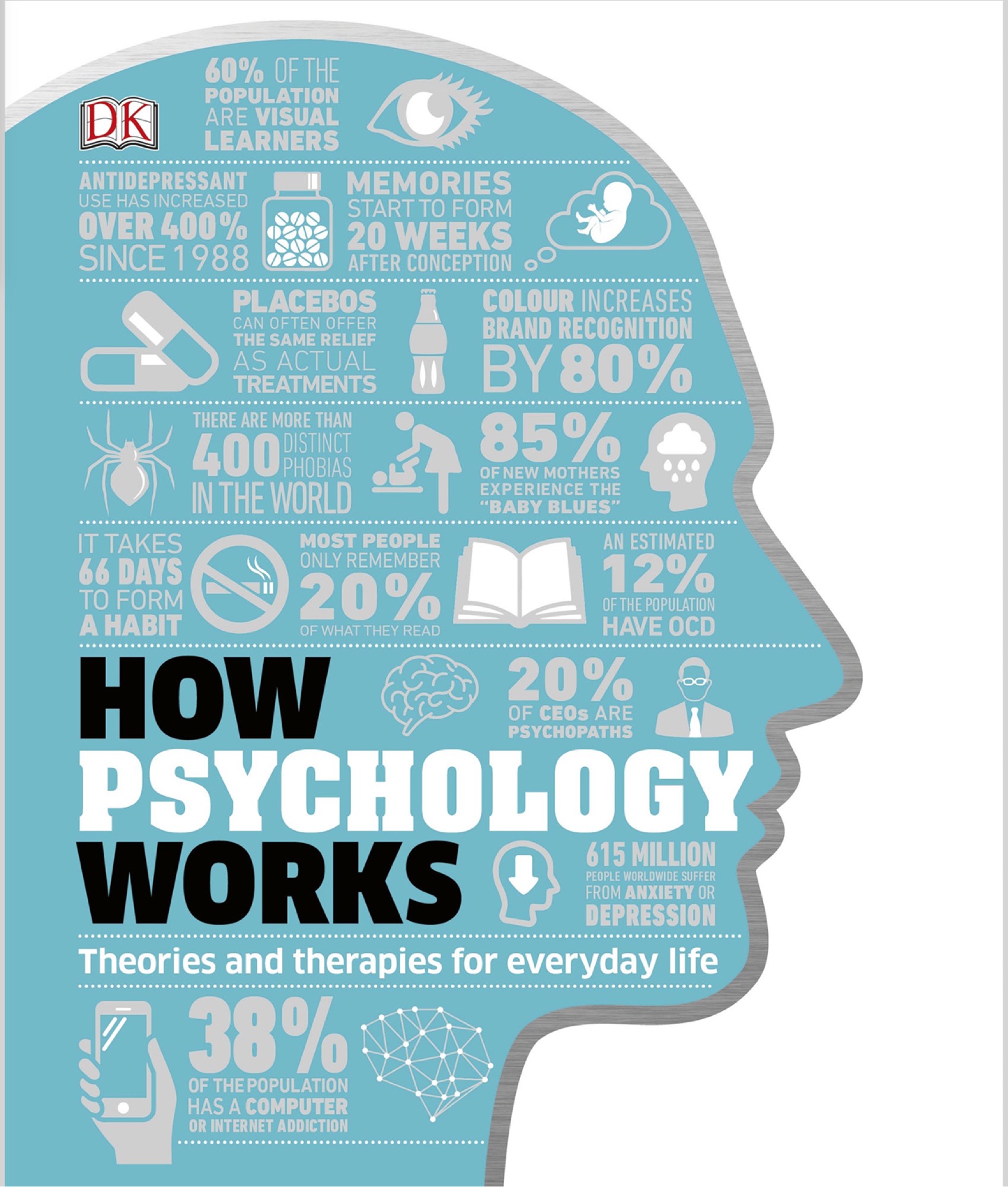DK HOW PSYCHOLOGY WORKS
The book How Psychology Works provides a comprehensive and visually explained overview of psychology, covering its various branches, theories, disorders, therapies, and real-world applications. Below is a summary of the key sections:
1. Introduction to Psychology
• Psychology is the study of the human mind and behavior.
• It intersects with various disciplines like biology, philosophy, sociology, and medicine.
• It helps explain behaviors, emotions, memory, and cognition.
2. The Development of Psychology
• The origins of psychology trace back to ancient Greek and Persian philosophers.
• Modern psychology emerged with Wilhelm Wundt’s experimental research in the late 19th century.
• Various approaches have developed over time:
• Psychoanalysis (Freud): Unconscious conflicts shape personality and behavior.
• Behaviorism (Watson, Skinner): Behavior is learned through interactions with the environment.
• Humanistic Psychology (Maslow, Rogers): Focus on self-actualization and personal growth.
• Cognitive Psychology: The brain functions like a computer, processing information.
• Biological Psychology: Brain structures, genetics, and neurochemistry influence behavior.
3. Understanding Psychological Disorders
• Mental health conditions are classified based on symptoms, causes, and treatment approaches.
• Disorders include:
• Mood disorders (depression, bipolar disorder).
• Anxiety disorders (panic disorder, phobias, PTSD).
• Neurodevelopmental disorders (ADHD, autism).
• Psychotic disorders (schizophrenia, delusions).
• Personality disorders (borderline, antisocial).
• Eating disorders (anorexia, bulimia).
• Addiction and impulse-control disorders (substance abuse, gambling).
4. Healing Therapies
• Various treatments exist for mental health disorders:
• Psychodynamic therapies: Address unconscious conflicts (psychoanalysis).
• Cognitive and behavioral therapies (CBT): Change thought patterns and behaviors.
• Humanistic therapies: Encourage self-growth (person-centered therapy).
• Biotherapies: Use medications or physical interventions.
5. Psychology in the Real World
• Psychology plays a role in multiple areas of life:
• Self-identity and personality development.
• Relationships and love dynamics.
• Education: Understanding learning styles and motivation.
• Workplace psychology: Leadership, team dynamics, and productivity.
• Forensic psychology: Criminal profiling and legal applications.
• Consumer behavior: Marketing, branding, and decision-making.
• Sports psychology: Motivation and performance enhancement.
6. How the Brain Works
• The brain’s structure and functions relate to behavior and cognition.
• Neurotransmitters like dopamine, serotonin, and adrenaline influence mood and actions.
• Memory processes involve encoding, storage, and retrieval, with emotions impacting recall.
Conclusion
• Psychology is deeply embedded in everyday life, influencing decisions, emotions, and interactions.
• The field continues to evolve with new research and applications in mental health, therapy, and behavioral science.
